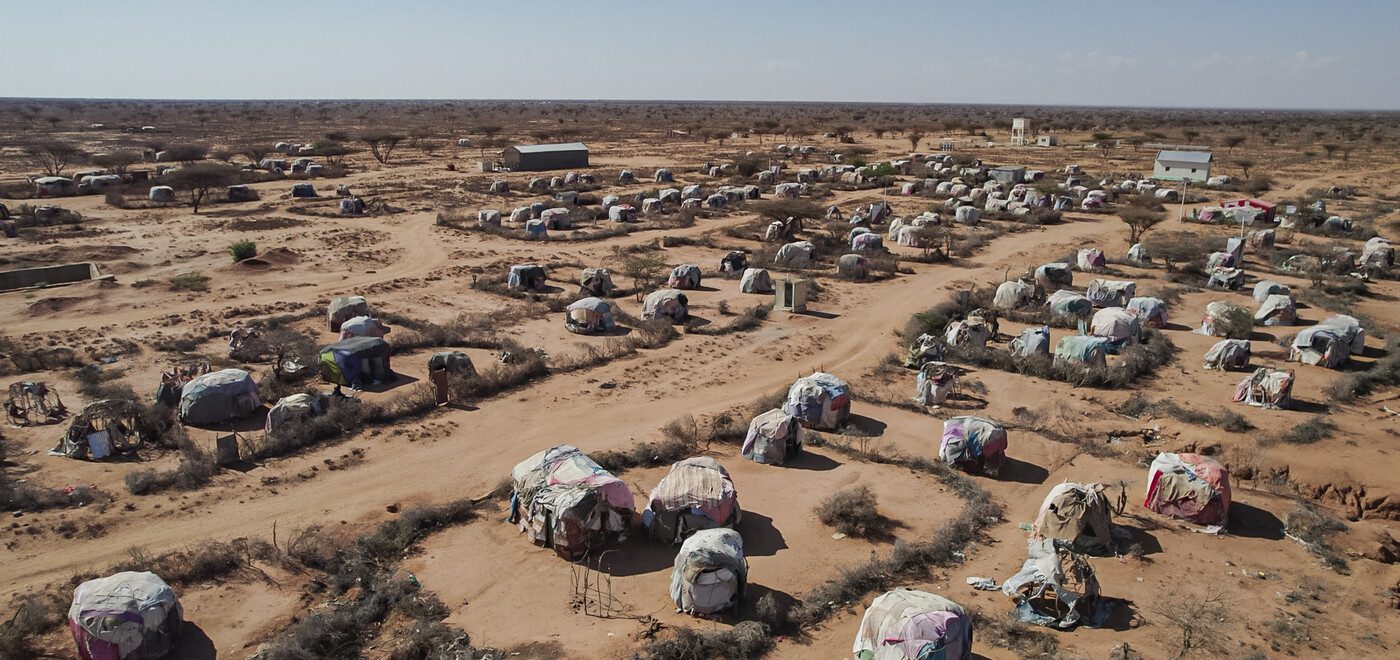Most families living in the Giro-Sumo IDP (Internally Displaced People) Camp were forced to leave their previous homes because the current drought made their communities almost completely unliveable. This is increasingly the situation for many communities across Ethiopia, Kenya and Somalia right now. Though residents in Giro-Sumo have an easier time accessing water now thanks to a central berkad (well) and consistent water trucking, the community is still experiencing extensive food, nutrition, and health issues. Shelter is weak and impermanent, and the toilets are not well equipped with many opting to go out in the open. In situations like these, women and girls face increased risks of gender-based violence.
Sagal Mohamed Saheed, 40, was 8-months pregnant when we spoke to her and has since given birth to a healthy baby boy. She has been living in the Giro-Sumo IDP camp for the past four years with her husband and two other children in the minority community “Gaboye.”
Since the previous drought in 2017, there has been a shortage of water across the countryside. The lack of wells to store the very little water communities do have, of course, makes it harder to stay. So, Sagal, and many other families, made the very hard decision to leave their communities and migrate to Giro-Sumo.
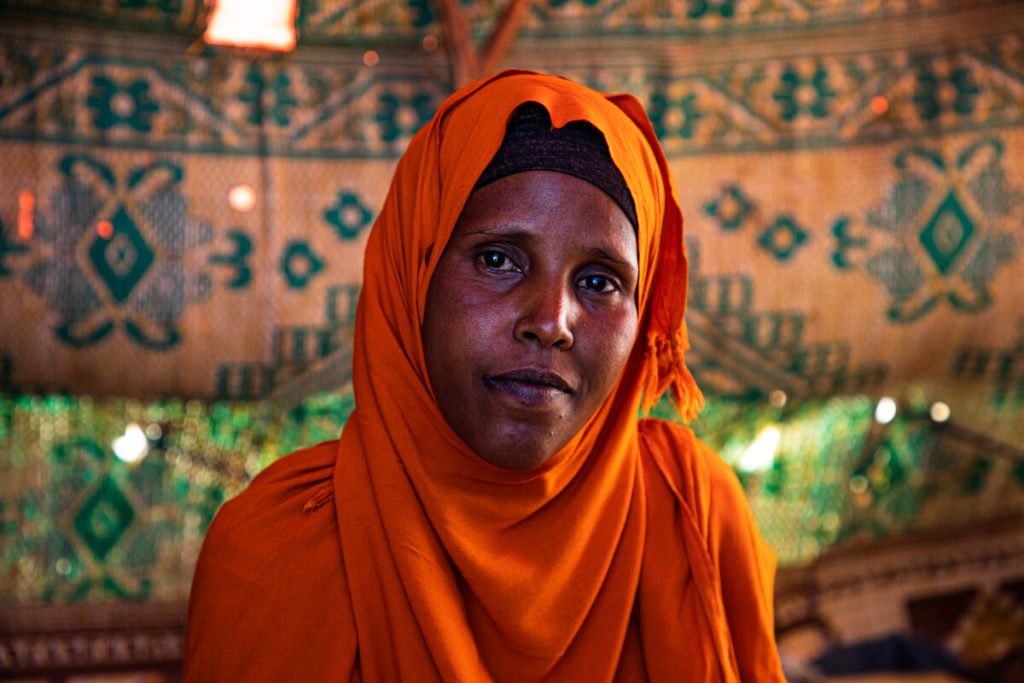
Photo: Daniel Jukes/ActionAid.
“Our previous life was good. I had 100 livestock and got milk from the livestock to drink, feed the children, or sell to buy other needed food items. We had a prosperous life. Now all our livestock has died.
Every mother is feeling sorrow when her children are eating only once a day and don’t eat the other two times. I feel sorrow every day.”
Sagal also shared with us that she and her children rely on black tea to cope with the agonising hunger between meals, as they can only afford one meal per day.
Our research shows that for some of the world’s most at risk communities, the cost of food, fuel and fertilizer is soaring. Some families have reported spending double, triple and in some cases nearly four times what they were paying before Russia’s invasion on Ukraine.
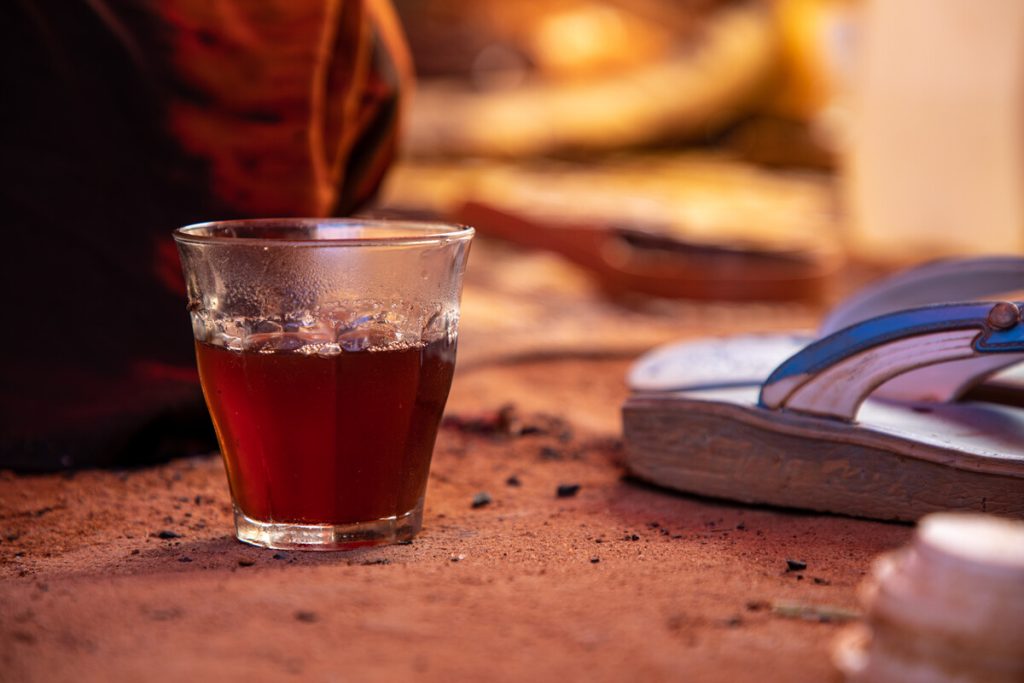
Daniel Jukes/ActionAid
Hinda Hersi Hussain, 25, is pregnant mother of 4 who was also pushed into Giro-Sumo IDP Camp by the drought. She shared that she fears for her dignity and the safety of her children. The sudden change in surroundings and circumstances is proving to be extremely difficult for Hinda, who used to live in a purpose-built Somali house.
Despite her current situation, Hinda is determined to give her children the best possible future and doesn’t see another migration in her future anytime soon.
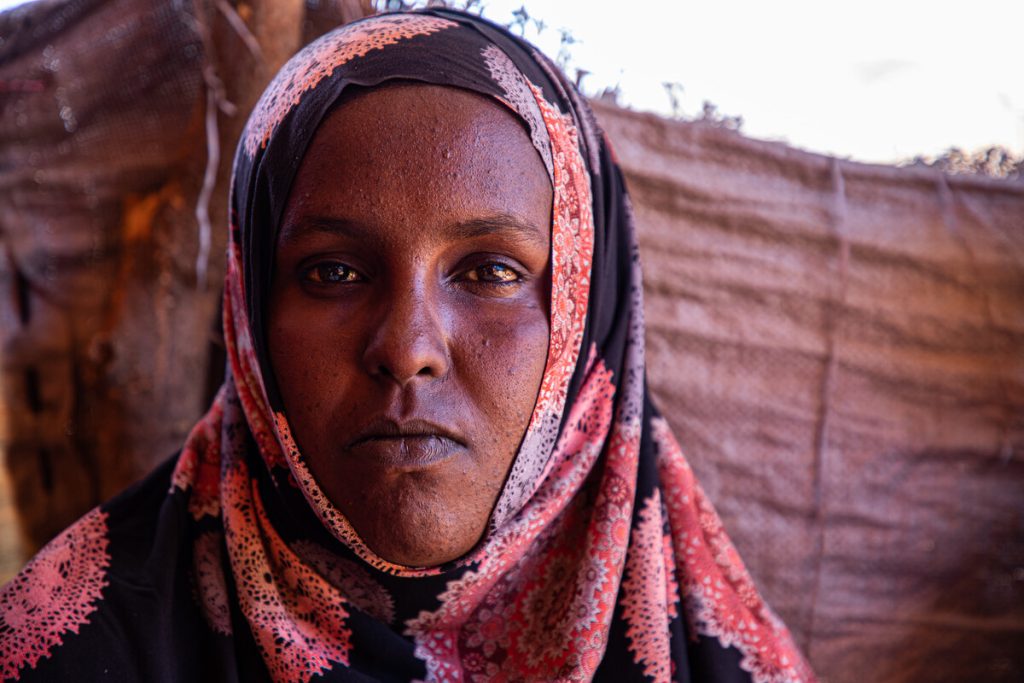
“I give them whatever I have, even if it is only water. I want my children to have a good father and mother, and I want the best for my future children. My kids go to school here. I want them to keep studying.”
In the past, Hinda and her family were successful pastoralists living a comfortable life with a sizable herd, but over the years droughts have killed the majority of livestock she owned, leaving her with only one goat out of a herd of 100. Hinda told us of how she was raised by her parents with milk from their animals, but now she cannot do the same for her children.
Since we spoke to Hinda, she suffered a seizure shortly after childbirth which left her in critical condition. She was transferred to a hospital in the nearby city of Burao for emergency treatment. After three months of recovery, Hinda finally returned to Giro-Sumo where she was reunited with her children.
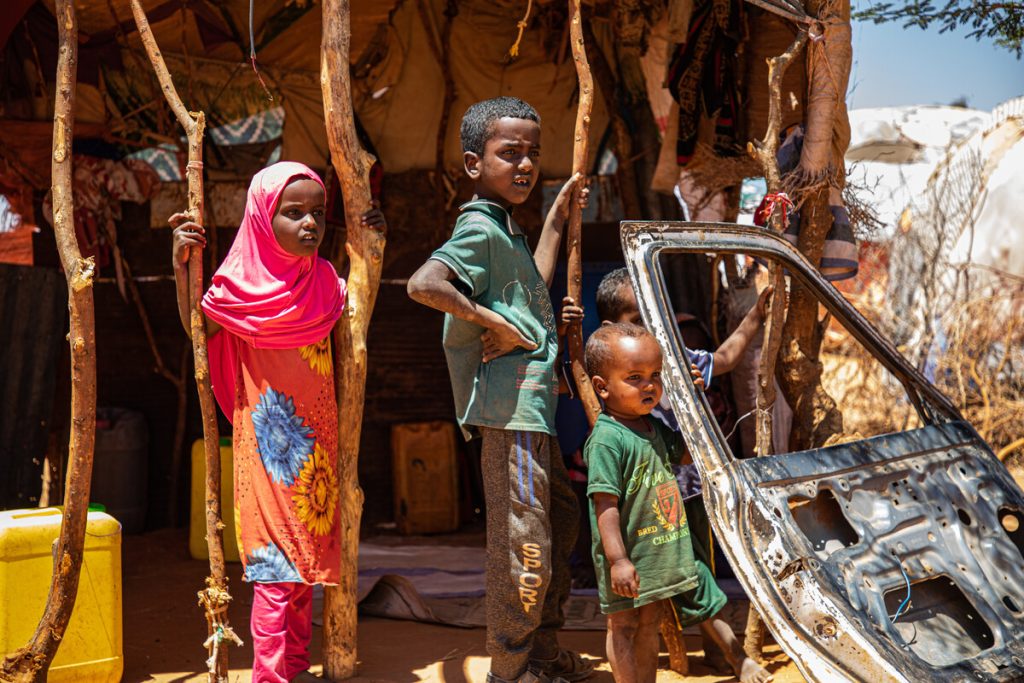
ActionAid previously supported 273 households with $75 in unconditional cash transfers per month, allowing communities to maintain some food security in the absence of making an income. However, that support has since transitioned to just one neighbourhood, and now the UN has reduced food support significantly, only supplying one neighbourhood with monthly food items. The need for support is dire, especially as mothers skip their own meals to feed their children once a day. Donate now to support communities facing hunger in East Africa.
Read about other communities living through the East Africa Food Crisis:
